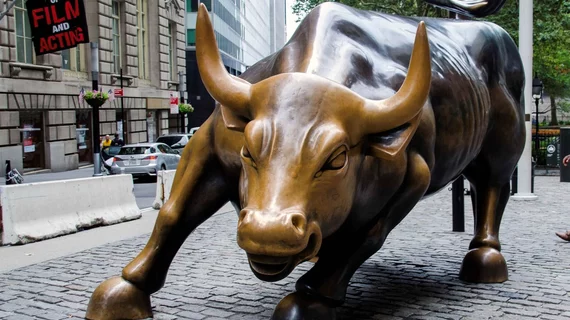Wall Street's bad day tied to Delta variant concerns
The Dow Jones Industrial Average, S&P 500 and Nasdaq all dropped significantly Monday, July 19—and the Delta COVID-19 variant seems to be the primary reason.
The three major U.S. stock indexes all took a hit as investors feared a new wave of shutdowns and negative economic ramifications, according to a new report from Reuters. While the S&P 500 and Nasdaq had their worst day since May, it was the Dow's lowest showing in nearly nine months.
"Much of it is related to the Delta (variant)," Paul Nolte, a portfolio manager at Kingsview Asset Management in Chicago, told Reuters. “There’s some concern too that maybe the economy is not going to open up as quickly as everyone thinks, and the big boom that everyone’s expecting is going to be more of a pop than a boom.”
“The emergence of this more highly transmissible Delta variant…has brought into the question the sustainability of this reopening and the recovery,” Candice Bangsund, a portfolio manager at Fiera Capital, told the Wall Street Journal. Bangsund still seemed confident, however, that things would bounce back sooner than later.
The COVID-19 Delta variant is highly contagious and has become the dominant strain worldwide in recent weeks. In fact, the daily number of COVID-19 cases in the United States has climbed by almost 20,000 over the past several weeks to nearly 32,000.
